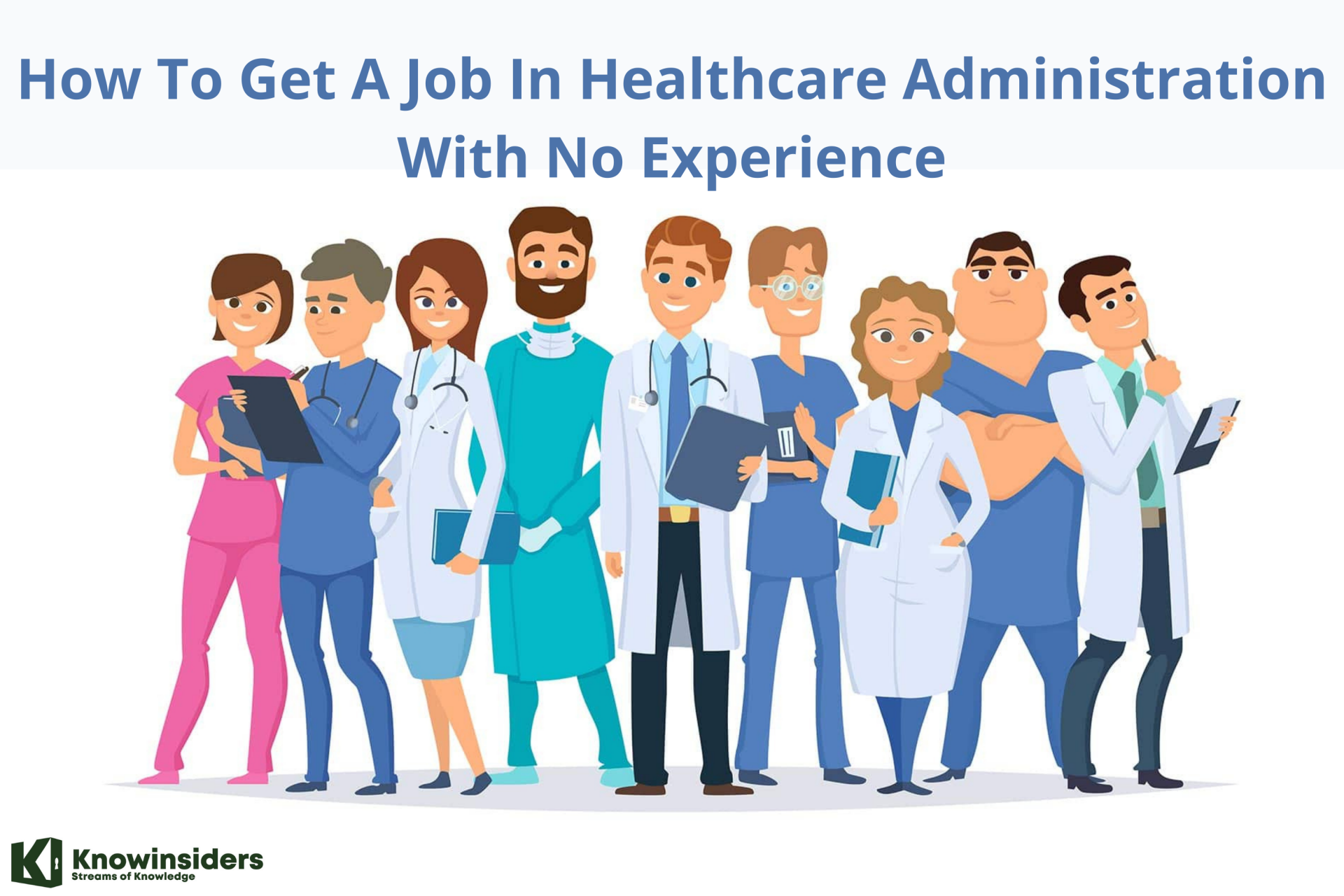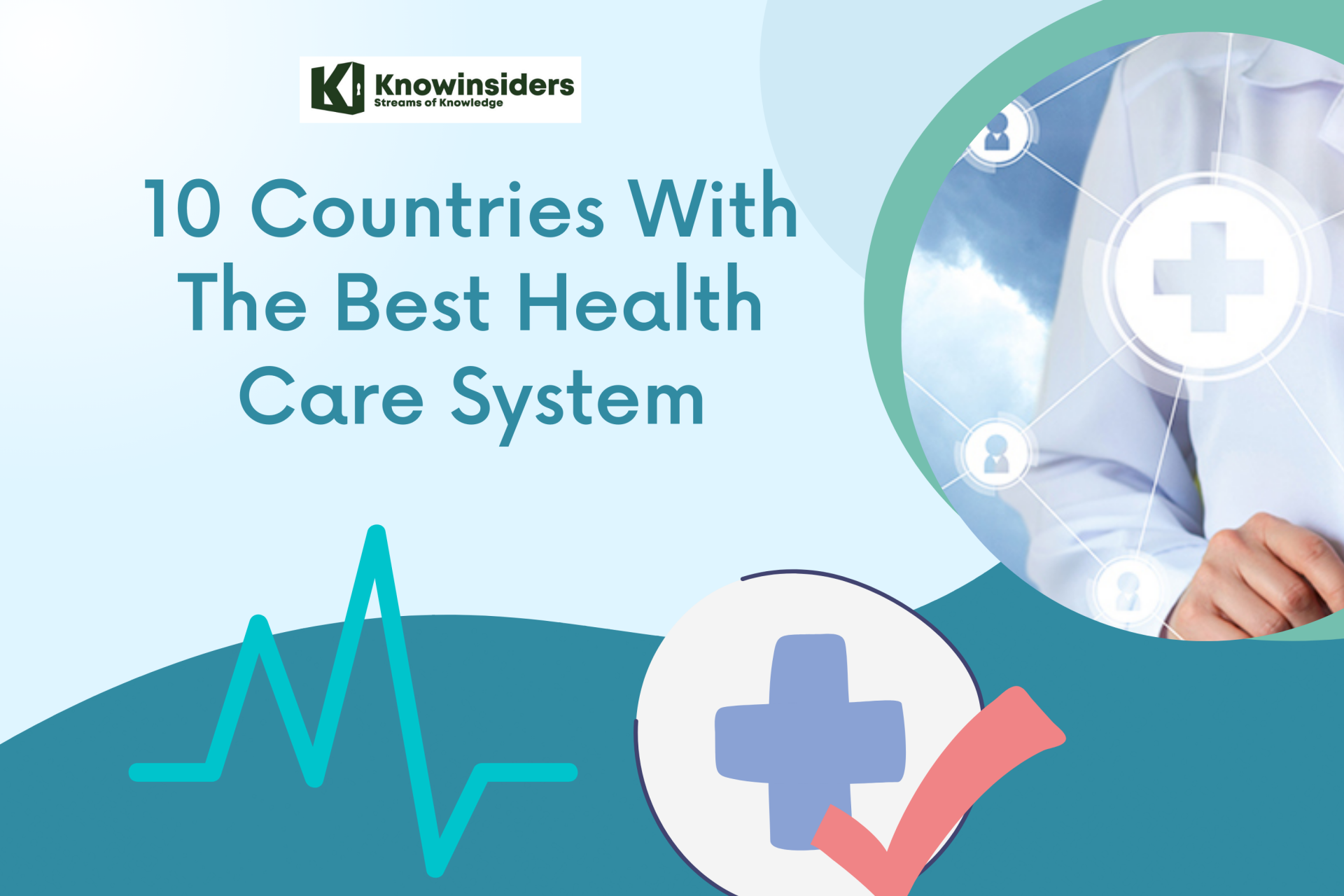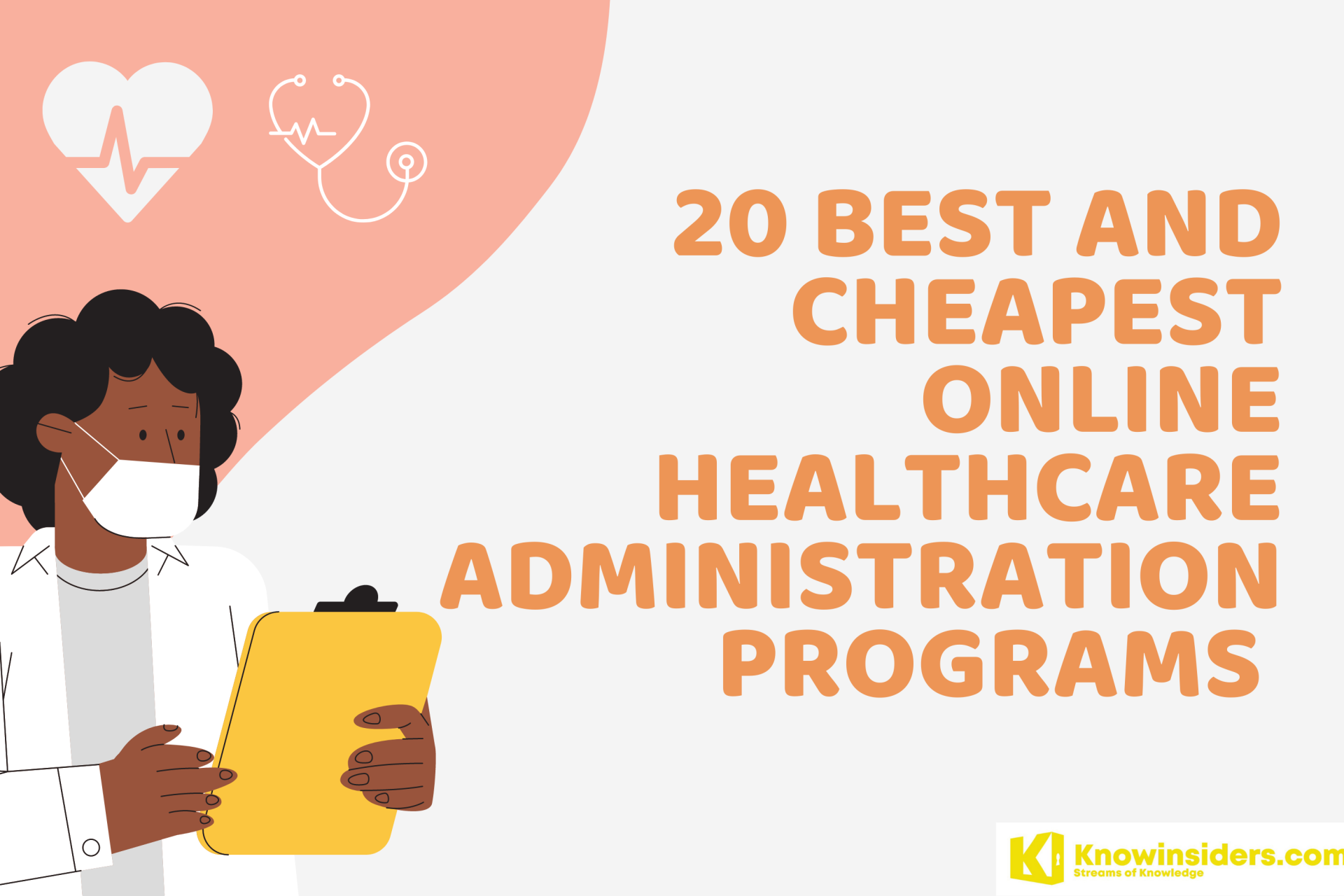Simple Tips To Get A Job In Healthcare Administration With No Experience
 |
| How To Get A Job In Healthcare Administration With No Experience |
Healthcare is growing at a faster rate than most industries. Now is an exciting time to be embarking on a career in healthcare management. Not only will at least 56,000 healthcare management jobs be added to the economy by 2024, but the future of the industry looks dynamic in many ways.
Healthcare administrators are the behind-the-scenes architects of the healthcare experience, ensuring everything runs smoothly for patients and medical providers. Entry-level healthcare administration jobs can be a great way for career transitioners and career starters to launch a career in this exciting field. This guide will shed light on how to get a job in healthcare administration with no experience and highlight some incredible entry-level healthcare administration jobs.
Career path for Healthcare Administration
Healthcare administration is a diverse career path with a variety of opportunities for different interests. Careers in healthcare administration can be lucrative as well, with the 2019 median pay for medical and health services managers at more than $100,000 per year. Entry-level healthcare administration jobs can be a launching pad for pharmaceutical and medical manufacturing careers or health policy. This landscape continues to evolve as the industry innovates.
Having experience from entry-level healthcare administration jobs can also create a strong foundation for business operations careers. Entry-level healthcare administration jobs can also be the stepping stone to more specialized careers in the field specific to human resources, consulting work, or executive officer roles.
For example, someone working as a medical administrative assistant will gain insight into the world of medical records, something they may leverage in the future to move into a more data-centric role. Reading through an entry-level healthcare administration job description can give candidates a clear idea of the skills they can expect to gain from the role to continue advancing their careers.
What Is Considered Entry Level?
Entry-level jobs in healthcare administration are any roles that do not require previous experience in a similar position. These types of roles are open to newcomers to the healthcare industry and the specific job title. Entry-level jobs in healthcare administration offer the opportunity to dive into the industry and learn on the go.
Do I have to earn a master’s degree to become a healthcare administrator?
While some entry-level jobs only require a bachelor’s degree in healthcare administration, many advanced positions require a master’s degree. Plus, there are topics and skills that you may learn from an MHA program that you may not have learned while getting a bachelor’s degree. For example, how to use statistical and economic analysis to better your organization or gain knowledge in medical law and pharmaceutical policy.
What are some Entry-Level Jobs in the Healthcare Administration?
 |
| Photo: nurse |
The title that you qualify for with a Bachelor's degree depends upon the setting that you choose to work in. You may be qualified to work as a practice manager in a small physician's office but will not find a management role in a larger setting until you have proven yourself. Some additional titles that you could hold to get experience include:
- Administrative medical assistant
- Executive assistant
- Program reimbursement specialist
- Business development associate
- Auditor
- Intake Coordinator
- Medical Records Associate
- Analyst
- Project Coordinator
Health care jobs are growing and this is especially true in administration. One of the main reasons why administration jobs are so important to companies is because there is a huge focus on cutting costs and lowering budgets so that the company or agency is able to hold on to as much of the revenues as possible. Make sure that you take the time to find out which areas of healthcare administration have the highest potential for growth and then you can select an entry-level job.
How long does it take to become a healthcare administrator?
It takes between six and eight years to become a healthcare administrator. You must first earn a bachelor’s degree (four years), and it is highly recommended that you complete a master’s program. Earning your master’s degree takes two to four years, depending on whether you take classes full or part-time.
What Level of Education Do do You Need to Qualify for Entry-Level Jobs?A majority of employers will look for candidates for health manager or administrator roles that have a minimum of a Bachelor's degree in Healthcare Administration or Health Management. While a 4-year degree in a relevant area of study will qualify you for several different roles, some healthcare employers are known to promote from within when experienced healthcare professionals, like nurses, would like to transition from a clinical role to an administrative role. If you know that your goal is to work in administration, be sure that you take elective courses in an area of the field that relates to the title that you would like to hold or the setting that you would like to work in. |
How do I get a job in Healthcare Administration with no experience?
These steps may help individuals create a new career path and become healthcare administrators.
Step 1. Obtain a Bachelor’s Degree in a Required Field
 |
| Photo: nurse |
First, earn a bachelor’s degree in healthcare administration or a related field, such as public health, business or a clinical discipline. Your undergraduate coursework should include a mix of healthcare and business courses to prepare you for your job duties.
Step 2. Gain Work Experience in Healthcare Administration
Before pursuing a higher level of education, it is beneficial to gain real-world experience. Some MHA programs, either on-campus or online MHA programs, may require up to three years of work experience. Other programs may prefer applicants who are currently working in the field.
Not all master’s programs require work experience, but having some will help you stand out in a competitive program. You could complete an internship, apply for an entry-level job or work part-time while completing your bachelor’s degree.
While direct healthcare administration experience is ideal, you may also get applicable experience in a different but related role. For instance, you might work for a hospital’s human resources department or coordinate billing at a physician’s office.
Step 3. Consider an MHA Program
 |
| Photo: signage.uiowa.edu |
For many candidates, the next step is to earn a master of health administration (MHA). Most higher-level positions require a graduate degree, so earning your MHA is vital for career advancement.
When selecting a program, look for a certification from the Commission on Accreditation of Healthcare Management Education (CAHME). This indicates that the program will adequately prepare you for a future career in the healthcare management industry. CAHME is the only certifying organization in the healthcare management education industry that is recognized by the Council on Higher Education Accreditation.
When you choose a CAHME-accredited MHA program, you know that the program meets rigorous academic standards and provides up-to-date information. Likewise, employers know that graduates from an accredited program are well-prepared for the healthcare administrator role.
Also consider whether you should attend an on-campus program or complete your degree online. There are many benefits to an online master’s in healthcare administration program, including flexibility and a wider variety of choices. You are not limited to schools in your geographic area and are free to choose the program with the best curriculum and reputation.
Step 4. Earn Industry Certifications
Earning an industry certification may help you further advance your career or improve your job prospects. There are many healthcare administration certifications available, including:
- Certified Healthcare Administrative Professional (CHAP) certification from the Association for Healthcare Administrative Professionals
- Executive Certification (CRCE) and Professional Certification (CRCP) certification from the American Association of Healthcare Administrative Management (AAHAM)
- Certified Healthcare Financial Professional (CFHP) certification from the Healthcare Financial Management Association
- Certified Professional in Healthcare Quality (CPHQ) certification from the National Association for Healthcare Quality
Requirements for earning a certification vary but may include education, work experience in the healthcare administration industry and membership in the certifying organization. Most certifications require you to pass an exam.
According to AAHAM, getting certified can increase your earning potential, provide opportunities for career advancement and expand your skills through continuing education.
Step 5. Pursue a Job in Healthcare Administration
Once you’ve completed your bachelor’s and master’s degrees, gained valuable work experience and earned relevant certifications, you’re ready to start searching for a job in the healthcare administration field. It’s helpful to narrow down your search to a particular area, like government, hospitals, outpatient clinics or nursing homes. You must decide what work environment aligns best with your career goals and other requirements, such as salary and hours.
What medical jobs don’t require a degree?
The Best Medical Jobs That Don’t Require a Degree:
Home Health Aide.
Personal Care Aide.
Phlebotomist.
Massage Therapist.
Medical Assistant.
Physical Therapist Aide.
Esthetician and Skincare Specialist.
Dental Assistant.
Is it hard to find a job in Healthcare Management?
 |
| Photo: indiaeducation |
Whether you’re currently enrolled in healthcare management courses or changing careers, there are many options to get your foot in the door. Choose your first administrative healthcare job based on the skills you want to develop that will ultimately lead you to where you want to be.
According to the American College of Healthcare Executives, the following departments within the healthcare field are your first step toward getting a job in healthcare management:
- Finance
- Government relations
- Human resources
- Information systems
- Marketing and public affairs
- Material management
- Medical staff relations
- Nursing administration
- Patient care services
- Planning and development
As well as hospitals and clinics, places to begin your job search include nursing homes, healthcare associations, health insurance companies, behavioral health facilities, rehabilitation centers, universities and research institutions.
Is Health Administration a good career?Healthcare administration is an excellent career choice for those seeking challenging, meaningful work in a growing field. … Healthcare administration is one of the fastest-growing occupations in the nation, with high median salaries, and offers plenty of opportunity to those looking to grow professionally. |
 How to Enroll ACA Health Insurance 2022 After Deadline How to Enroll ACA Health Insurance 2022 After Deadline Open enrollment for 2022 ACA health coverage started nationwide on November 1 via HealthCare.gov. In most states, it will end on January 15, 2022. |
 Top 10 Countries With The Best Healthcare System and Why Top 10 Countries With The Best Healthcare System and Why A country’s health care system can exert a considerable effect on its dwellers' life quality. Which countries have the best healthcare system? |
 What Is Digital Healthcare: Top Trends In The Future? What Is Digital Healthcare: Top Trends In The Future? What is digital healthcare, why is it important and how does it change the healthcare system in the future? |
























